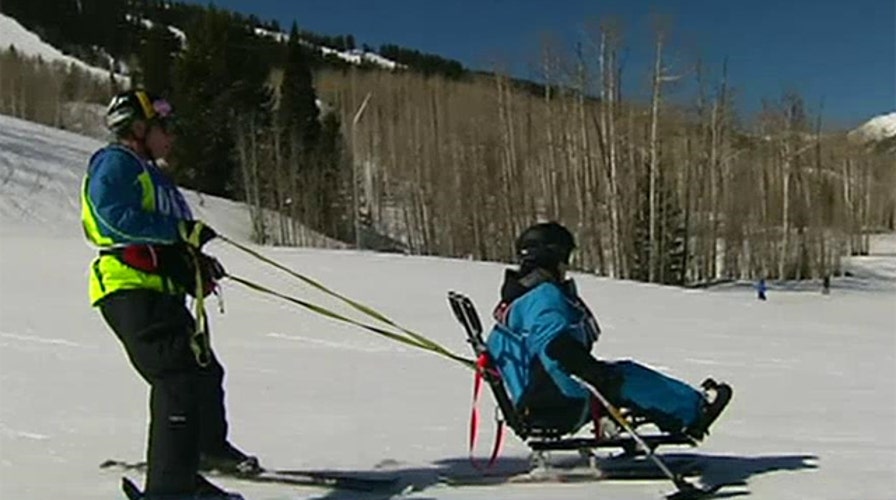Nearly 350 disabled vets take part in winter sports clinic
Event helps veterans with combat injuries
Service to their country may have dealt them mountains of new challenges in the form of life-altering injuries, but this week the nearly 350 U.S. veterans participating in the activities at the National Disabled Veterans Winter Sports Clinic in around Snowmass, Colo., are being offered opportunities to reach new personal peaks.
There is a wide range of challenges at the event, which is in its 29th year. Several sports have been added, as the event has steadily grown from adaptive skiing to include curling, scuba diving, kayaking and more.
Organizers say the physical demands and camaraderie here help with the rest of the challenges in the veterans' lives. Disabled American Veterans (DAV) National Commander Ron Hope, says, "I don't think in the 29 years, anybody has ever said, 'I can't do it.'"
"I don't think in the 29 years, anybody has ever said 'I can't do it.'"
Hope points out the event has parallels to what the veterans knew when they served. He describes it as a confidence-building exercise. "This is definitely not a playweek. It's not a vacation week. They come out here knowing that they have to concentrate. The discipline… they were taught that in the military. This takes them back to that."
Mike Galloucis, executive director, VA Public Affairs says, "...maybe in the last couple of years since their injury they haven't done much physically. Here, they're going to do things physically. And you can almost see like a flame is lit, their soul, it comes to life and they realize, 'Hey, I can ski!'"
Aubrey Youngs injured her spine in Afghanistan and spent nearly nine months in the hospital. She had to be pushed to attend Winter Sports Clinic, but has been back several times since. She says it provides a good bridge between military and civilian life, "So many people are scared to get back out in their community because the community doesn't understand some of the conditions and issues… since a veteran's time in service. So when you come here, everyone understands what those are."
Veterans pay for their transportation and their hotel rooms. Other expenses, including lift tickets, meals and equipment, are covered by the event. The bulk of the event budget, 80 percent, is footed by donations and sponsors.
One of those sponsors is former Deputy Defense Secretary Paul Wolfowitz, who also volunteers and works to promote the event.
"They don't have to accept the limits that were imposed on them," he said.
For those interested in participating or helping, see www.wintersportsclinic.org


